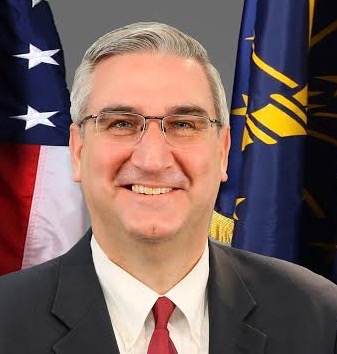Dave Stafford for www.theindianalawyer.com
A district court’s decision affirming a Social Security administrative law judge’s ruling on the onset date of an engineer’s disability was vacated Wednesday by the 7th Circuit Court of Appeals, which found medical and other evidence strongly suggests an earlier disability date.
Sean Walker held degrees in robotics and electrical engineering and had worked primarily as an engineer before he suffered a stroke in 2008, which left him unable to work. His physical and cognitive function deteriorated afterward, according to the record, and the ALJ determined the onset of Walker’s disability was December 2014.
The panel on Wednesday vacated that finding, which was affirmed in the Indiana Northern District Court, remanding Sean C. Walker v. Nancy A. Berryhill, 17-3391. The panel noted the ALJ’s conclusion “sweeps too broadly by not accounting for medical and other evidence strongly suggesting that Walker’s condition and residual functional capacity had worsened to such a degree that he become disabled by approximately the middle of 2012,†Judge Michael Scudder wrote.
Walker initially filed for disability benefits under Title II of the Social Security Act and supplemental security income under Title XVI in March 2012, claiming he became disabled just after his stroke. An ALJ determined he was not disabled, and Walker successfully appealed, with the district court remanding for renewed consideration of the opinions of Walker’s treating physician.
“Before this proceeding concluded, Walker filed a second application for supplemental security income under Title XVI, alleging that he had become disabled by December 5, 2014. The agency agreed and granted the application, expressly finding that Walker was disabled by that date,†Scudder wrote, An ALJ in a rehearing used this disability date in awarding benefits, but found no earlier onset of disability in the prior period after Walker’s stroke.
The panel recognized Walker’s case was “challenging†due to the onset date agreed by both parties, coupled with extensive medical evidence of Walker’s progressively worsening condition. However, the panel cited Social Security Ruling 83-20, whose guidance is the “onset date should be set on the date when it is most reasonable to conclude from the evidence that the impairment was sufficiently severe to prevent the individual from engaging in [Substantial Gainful Activity] (or gainful activity) for a continuous period of at least 12 months …â€
In this case, the ALJ discounted evidence that, under SSR 83-20, supported a conclusion that Walker became disabled in mid-2012.
“We owe a word about the ALJ’s decision to afford only partial weight to Dr. (William) Goudy’s August 2012 assessment of Walker. As the treating physician, Dr. Goudy’s opinion was entitled (under the regulations in effect at the time) to controlling weight unless the ALJ set forth ‘good reasons’ for assigning it lesser weight. … The reasons set forth by the ALJ are not supported by substantial evidence, as they too discount, if not overlook, express conclusions Dr. Goudy made about Walker’s condition from August 2012 forward,†Scudder wrote.
“In clear and precise terms, Dr. Goudy stated that Walker’s condition — his recurring dizziness and imbalance, worsening memory, inability to walk any meaningful distance — not only left him unable to work, but was expected to worsen further in the coming years,†Scudder continued. The ALJ needed to offer a good reason for disregarding this opinion, coming as it did from Walker’s treating physician in August 2012. In the face of Walker’s deteriorating condition, the record does not support the ALJ’s decision to prefer Dr. (Kay) Roy’s oneâ€time assessment of Walker in April 2012 over the views and prognosis of Walker’s treating physician from a later point in time.â€





